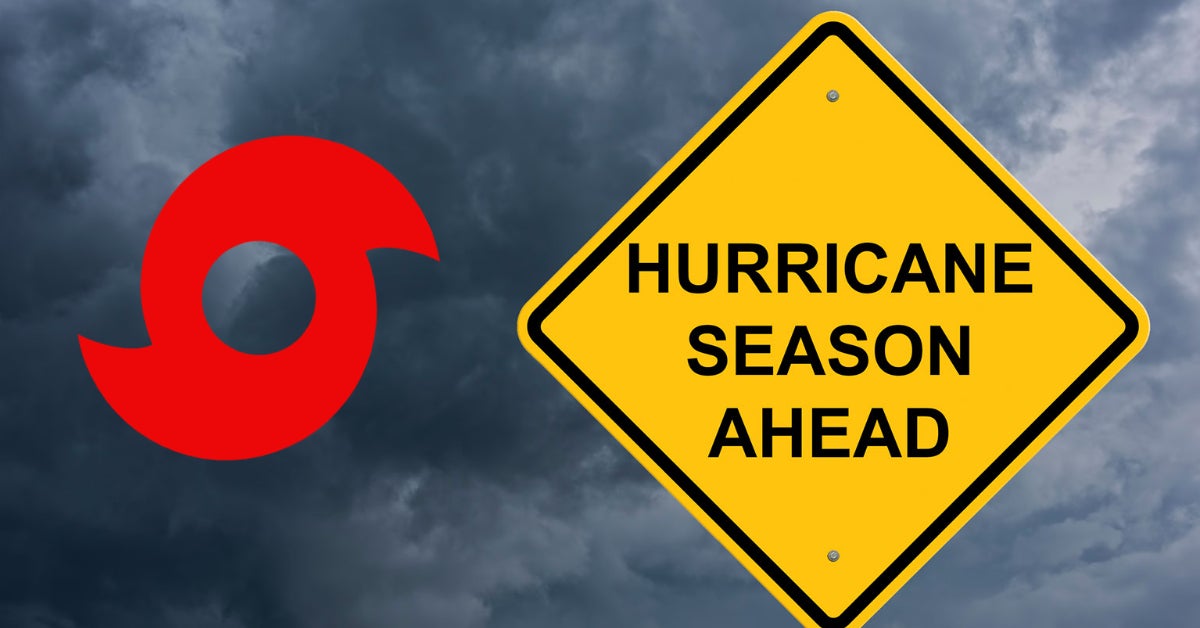Elfer: Warren County residents need to prepare for hurricane season
Published 5:35 pm Tuesday, May 30, 2023
Monday’s Memorial Day holiday marked what some people call the start of summer.
Thursday, June 1, marks the beginning of another season, and this one is not a cause for celebration for the states bordering the Gulf of Mexico and the East Coast. Thursday is the start of hurricane season; a six-month period from June 1 to November 30 when the coastal communities keep a close eye on the skies and the sea and pay close attention to the National Weather Service when low-pressure systems are detected at sea.
According to the National Oceanic and Atmospheric Administration, 12 to 17 total named storms with winds of 39 mph or higher are predicted this season, with the possibility of five to nine of those storms becoming hurricanes with winds of 74 mph or higher, including one to four becoming major storms of Category 3, 4 or 5 with winds of 111 mph or higher.
One of the reasons for what the scientists are calling a “near normal season” is the high potential for El Niño to develop this summer, which can suppress Atlantic hurricane activity.
According to the U.S. National Geological Survey, the term El Niño, which is Spanish for “the Christ Child,” refers to a warming of the ocean surface, or above-average sea surface temperatures, in the central and eastern tropical Pacific Ocean.
The low-level surface winds, which normally blow from east to west along the equator, or “easterly winds,” instead weaken or in some cases, start blowing in the other direction from west to east, or “westerly winds.”
El Niño recurs irregularly, from two years to a decade, and no two events are exactly alike and El Niño events can disrupt normal weather patterns in the United States and globally.
But regardless of what weather system may be influencing the storm season, if a storm hits, the coastal areas may receive the major share of damage but people living well inland can feel the effects of a storm in the form of high winds, heavy rains and tornados spun off from the hurricane as it makes its way in from the coast.
“The message we want to send is, now is a good time to make sure all your plans are in place, all your alert systems are in place and that you have your emergency supply list; don’t wait until a day or two before the storm hits; get that stuff in place,” Warren County Emergency Management Director John Elfer said.
That also means making sure generators are in working order.
“People buy generators and don’t understand how they work or they don’t maintain them when you need them to work; they need to read the owner’s manual from the manufacturer so they don’t get injured and no one else gets hurt,” he said. “We’re no stranger to bad weather, but just because we don’t get a storm surge like they do in the lower three counties doesn’t mean we won’t get some bad weather — a spin-off tornado, strong winds, heavy rain. The only good thing about a hurricane is we generally know a few days in advance about the track of it.”
And now, Elfer said, is a good time for people to go to the National Weather Service website look at the tropical forecast “and start reading that and getting a better understanding of what those forecasts really mean. There’s a lot of data; paying attention to those forecasts five, six, seven days out can make quite a big difference.”
Elfer said people can get more information about emergency supply kits by going to the Mississippi Emergency Management Agency or the Federal Emergency Management Agency websites.
The MEMA recommendations include:
• Large storage containers to keep all of the supplies of the kit in one spot
• At least 1 gallon of water daily per person for three to seven days
• At least enough food for three to seven days, including any special food needed for dietary purposes, non-perishable packaged or canned food, juices, snack foods, non-electric can opener, cooking tools, fuel, paper plates and plastic utensils
• Written instructions for care and medication including a list of all medications and their dosages, a list of all doctors, list of the styles and serial numbers of medical devices you use
• First aid kit medicines and prescription drugs including an extra supply of required prescription medications (you should have medication for at least two weeks), extra oxygen if necessary, adhesive bandages, bug repellent, burn cream aspirin, pain relievers, rubbing alcohol and hydrogen peroxide
• Extra sets of eyeglasses and hearing aid batteries
• Blankets and pillows
• Clothing – seasonal/rain gear/sturdy shoes
• Toiletries – hygiene items, moisture wipes
• Flashlights – each family member should have their own flashlight.
• Batteries
• Radio – a hand-cranked or solar-powered radio is ideal; if using a battery-operated radio, buy at least seven sets of batteries for the kit
• Telephones – fully charged cell phone with extra battery and a traditional (not cordless) telephone set
• Cash and credit cards – banks and ATMs may not be available for extended periods; make sure cash is in small bills
• Extra set of keys – home and car
• Toys, books and games
• Important documents in a waterproof container or watertight re-sealable plastic bag and extra copies of medical insurance documents and Medicare/Medicaid cards and other insurance records, medical records, bank account numbers, Social Security card
• Tools – keep a set with you during the storm; gather together sheets of plastic, tools, nails, duct tape and paint







